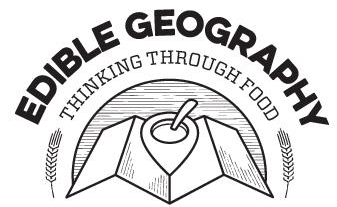As any self-respecting locavore can tell you, many of us have forgotten how to eat seasonally, at least in the developed world. Nonetheless, the weather still exercises a huge effect on the food we choose to buy and eat.
As British supermarket giant Tesco has discovered, “a rise of 10ºC, for example, led to a 300% uplift in sales of barbecue meat and a 50% increase in sales of lettuce.” Meanwhile, a summer washout in Scotland saw “sales of roast potatoes – traditionally a winter food – soaring by a scorching 454%, while soup sales rocketed by 88%.”

A summer salad and its climatic opposite, a full roast dinner.
Supermarket profits rely on tailoring inventory to meet demand: burgers and salad leaves will go to waste over a rainy Bank Holiday, while shoppers seeking comforting, cold-weather foods, such as stewing beef or parsnips, will leave stores disappointed, and possibly even empty handed.
Unfortunately, British weather can be rather unsettled, to say the least. Even more problematically, at least from the point of view of the big supermarket chains, is that fact that this already variable weather also seems to be totally unpredictable: what we see outside our windows often bears little or no resemblance to the official Met Office forecast.
Summer 2009 has been no different – indeed, as the New York Times reported last week, “After predicting a hot summer with record temperatures, the Met Office had to correct its forecast on Aug. 21, saying that there would be heavy downpours instead. More than twice the amount of rain fell in July than the long-term average.”

The BBC‘s icons imply many weather possibilities.
This kind of forecasting failure costs supermarkets money. In response, Tesco has set up its own weather forecasting team. “After three years of research, the six-person team has created its own software,” we read in the New York Times, “based on the weather and shopping patterns of 12 British regions over the last three years.”
According to spokesman Mike Baess (as reported by media agency Deadline Scotland), Tesco’s internal weather team has already saved the company hundreds of thousands of pounds:
An example of how we got it right is that in the last week Scotland has had some pretty dismal weather, more akin to mid-autumn, despite it still being summertime. At this time our stores should still have BBQ and salad foods on their shelves, but the team sent out a five-day weather report advising the supply chain of the bad weather. They were told to stock more rainy-day food such as heavier vegetables, soups and puddings.
Not content with owning nearly a third of the U.K. market, or even £28bn in property assets worldwide, the supermarket chain now owns their own weather forecasting algorithm. Tesco has privatised meteorology; next week’s weather is now a trade secret.
But with so much money at stake, and to paraphrase BLDGBLOG slightly, perhaps the future of supermarkets is in weather control. Tesco could bypass prediction altogether, in favour of space-based solar mirrors, cloud-seeding cannon, and the water-absorbent Dyn-O-Gel. After all, they have already reshaped British towns, agriculture, diets, personal finance, reading habits, and even teeth – why not redesign the weather, too?

Renderings of Tesco’s proposal for a sustainable community in Tolworth, via This is Local London.
In fact, combined with its strategy of building entire communities around new stores (such as their thirteen-acre mixed-use proposal for Tolworth), Tesco weather could be delivered to Tesco households, exactly as desired. Rained-off barbecues and wasted inventory would become a thing of the past; house prices in Tesco communities would skyrocket; and neighbourhoods unlucky enough to have a Waitrose would be reduced to glumly forcing down mâche in the intermittent drizzle, or sweating uncomfortably over organic leek and potato soup.
Of course, the irony is that Tesco already does more than its fair share of climate engineering, despite their investment in Manchester University’s Sustainable Consumption Institute and stirring talk of “leading a consumer revolution in green consumption.” By sheer virtue of scale, if nothing else, Tesco is contributing to the volatile weather patterns it now seeks to predict.

